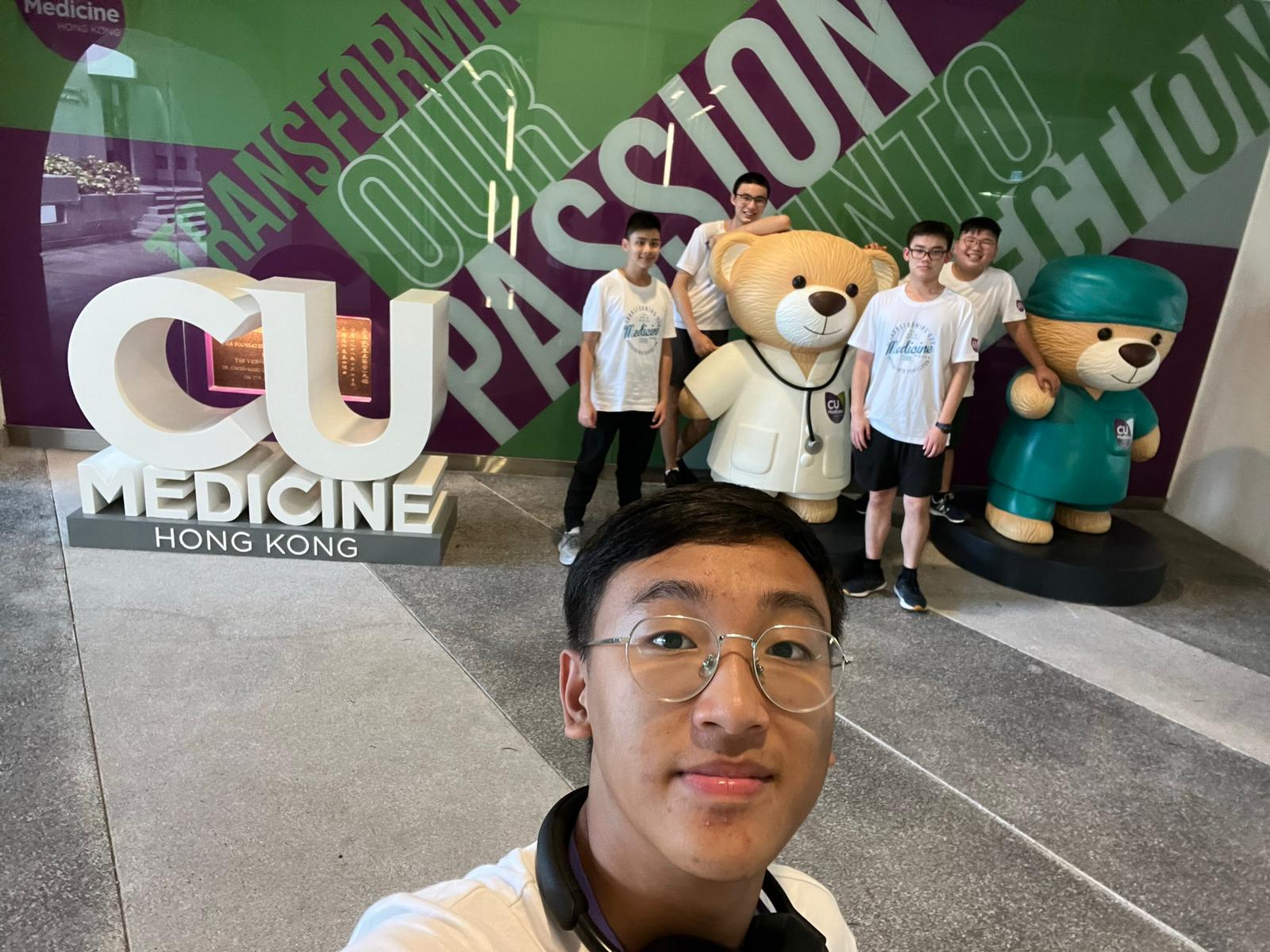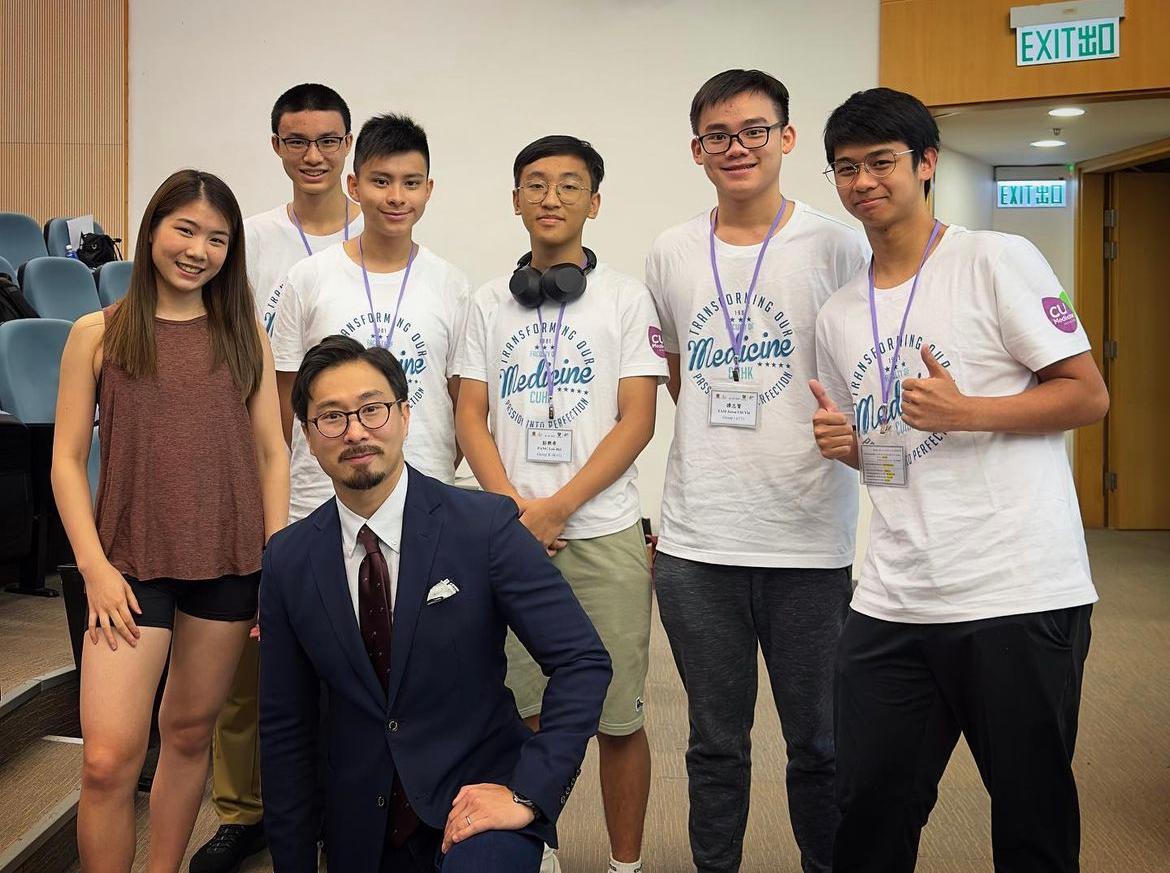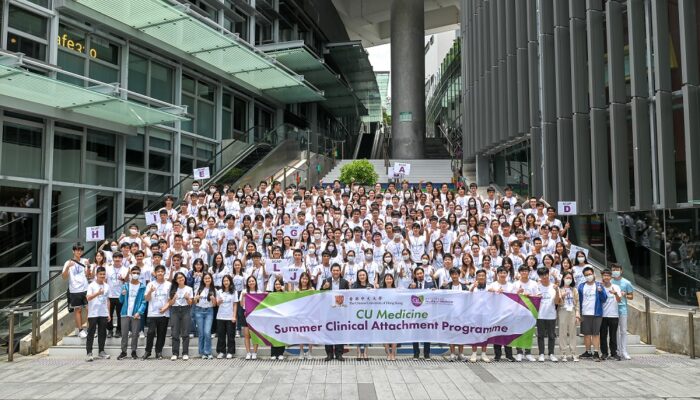CUHK Summer Clinical Attachment Programme (CUHK SCAP) 2023
A group of our Year 13 students who are aspiring medics joined the CUHK Summer Clinical Attachment Programme (CUHK SCAP) this July. They enjoyed the programme and learned a lot about medicine as a career.

Adrian Au Yeung:
The CUHK SCAP was an enlightening experience which reinforced my passion to pursue medicine as a career. More specifically, the part that stood out to me the most was the insightful opportunity to experience university life at CUHK and the chance to connect with distinguished medical students. This not only broadened my understanding of what medical school was like, but also allowed me to be more mentally prepared for the strenuous but accomplishing journey of studying medicine.
Benedict Pang:
As the signature component of SCAP, the doctor shadowing session took place in Prince of Wales Hospital, where I attached Professor James F Griffith from the Department of Imaging and Interventional Radiology. Most memorably, I witnessed CT-guided biopsy on a patient with metastatic spinal tumour, in which a needle was used to obtain a tissue sample from the tumour for characterization. I am immensely grateful to Professor Griffiths for his dedication to teaching, as he meticulously explained each procedure and case in great detail. This experience greatly deepened my understanding of medicine, whilst inspiring my curiosity and fueling my passion to study medicine in the future.

Marcus Lam:
During the SCAP session, I had the privilege of attending a captivating lecture led by Dr Christopher See and STC alumni Charlotte Lin, where they skillfully bridged the realms of medicine and art. Their seamless integration of yoga’s grace and the intricacies of spinal anatomy left a lasting impact on me. Witnessing Charlotte’s yoga poses serving as educational illustrations of spinal movement and architecture was a revelation, as it brought practicality to the forefront of the learning experience, a rarity in traditional classroom settings. Dr See’s ability to engage and captivate the audience was truly impressive, and his innovative approach to teaching human anatomy through yoga provided an immersive learning experience for all of us. This unique blend of science, movement, and self-discovery fueled my passion to explore the fascinating intersection of biomedical sciences in the future.
Jason Tam:
During the professor sharing sessions, I was exposed to the work of a professor, and gained valuable insight into what kind of work they would do, including their research. Through this experience, I was able to understand how doctors contribute to society not only through day-to-day work in a hospital setting, but also through innovation, research and training the next generation of doctors. This allowed me to gain insight on the different career paths on which a doctor could embark.
Isaac Leung:
Having the opportunity to visit CUHK’s dissection lab and observe specimens of various body parts was certainly one of the biggest highlights of this year’s SCAP. Examining sectional views of different tissues, organs and even entire systems of the human body under the supervision and guidance of passionate medical students broadened my insight into anatomy and functioning of the human body. The notions of respect and dignity in medicine were also displayed to us through the faculty’s professional and respectful treatment of the cadavers.
Tate Wai:
The lecture given on the development of minimally invasive surgery was an eye-opening experience, where I briefly learnt about the advantages and limitations of different surgery techniques. A video showing a robotic surgery system folding an origami smaller than the size of a penny demonstrates the intricacy of modern medical technology. Such new surgical innovations allow previously impossible procedures to be executed with precision. This made me realise that medicine is an ever-evolving discipline with constant technological developments.

